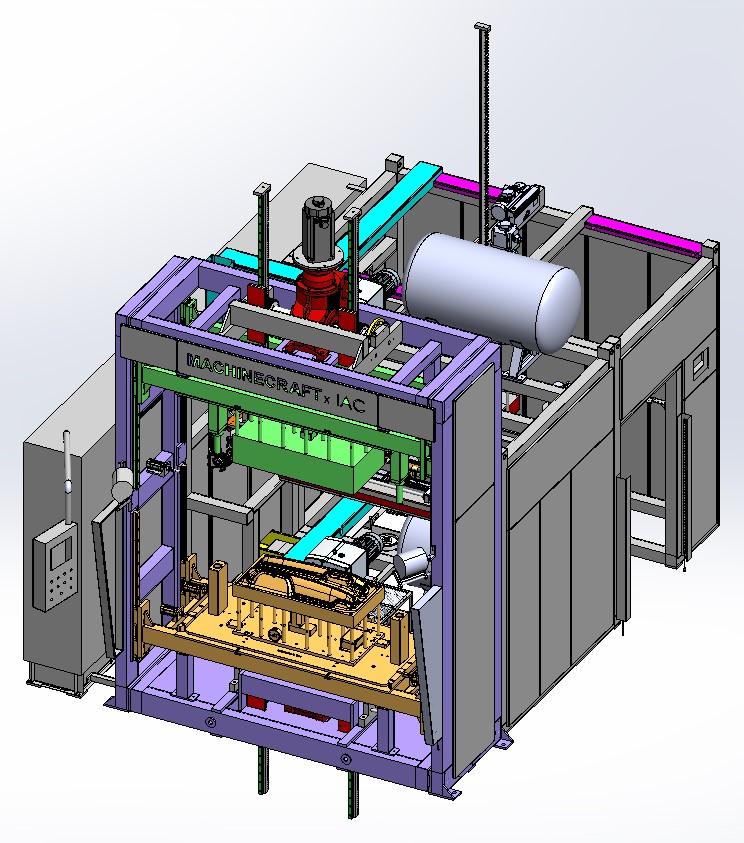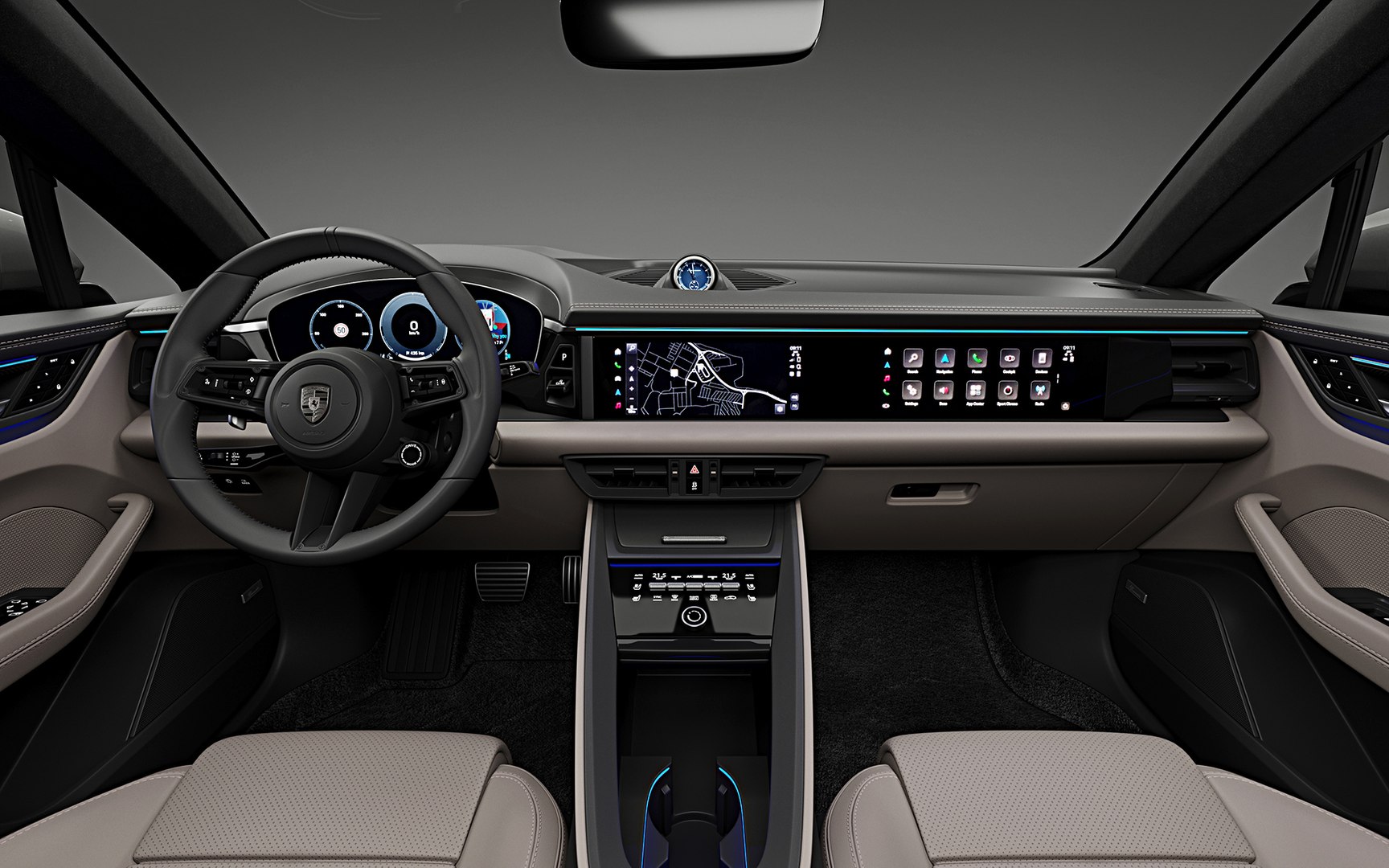
The B2B platform for the best purchasing descision. Identify and compare relevant B2B manufacturers, suppliers and retailers
Close
Filter
Result configuration
Continents
Select continent
Locations
Result types
Company type
Select company type
Industries
Select industry
Company status
Select company status preset
Number of employees
Min.
Max.
Founding year
Xpanner Inc.
Seoul, South Korea
A
51-100 Employees
2020
Key takeaway
Xpanner is revolutionizing the construction industry by providing innovative automation and robotics solutions that enhance machinery efficiency and productivity. Their tech-enhanced equipment and retrofit automation can significantly reduce task costs and cycle times, addressing the industry's labor challenges.
Reference
Core business
Xpanner | Innovative Construction Automation Solutions
Xpanner provides automation and robotics upgrades for construction equipment, increasing efficiency and allowing contractors to save on labor costs
Kraversoft
Seoul, South Korea
A
1-10 Employees
2016
Key takeaway
KRAVER SOFT offers 3D CAD-based mechanical component design software and automation services, which are essential for machinery development and design.
Reference
Product
KRAVER SOFT
3D Mechanical Component Design Software and Service

Human Science Technology Co., Ltd.
Incheon, South Korea
A
1-10 Employees
2001
Key takeaway
HSTec specializes in creating innovative solutions for industrial applications, offering high-precision custom machine parts produced in a state-of-the-art facility with advanced machinery, including CNC lathes and milling machines. Their expertise in motorized spindle design and industrial automation further establishes HSTec as a leader in the machinery sector.
Reference
Core business
Company Overview | HSTec
Looking for more accurate results?
Find the right companies for free by entering your custom query!
25M+ companies
250M+ products
Free to use
MAGNA MARE - Consulting & Engineering
Busan, South Korea
A
11-50 Employees
2010
Key takeaway
Magna Mare is a prominent player in the maritime industry, offering a comprehensive range of services including Turn Key Engineering Projects, manufacturing, and technical services. With their own manufacturing facilities and a focus on shipbuilding equipment and marine equipment manufacturing, they cater to the needs of commercial ships and their associated equipment.
Reference
Core business
HOME | magnamare
RB-Weld
Hwaseong-si, South Korea
A
11-50 Employees
-
Key takeaway
RBW specializes in developing collaborative robot (cobot) welding and metalworking solutions that enhance productivity and reduce labor costs. Their offerings include automated MIG welding systems and advanced fiber laser welding solutions, addressing the industry's need for efficient and reliable welding processes.
Reference
Product
Products | RBW
Unirobotics
Gunpo-si, South Korea
A
- Employees
-
Key takeaway
Unirobotics offers advanced robotics technology through its Smart Manufacturing System, which enhances efficiency and accelerates business operations. With a focus on data analysis and reliability, the company positions itself as a leader in smart manufacturing solutions.
Reference
Core business
Home | Unirobotics Inc.
Technologies which have been searched by others and may be interesting for you:
A selection of suitable products and services provided by verified companies according to your search.

Service
IMG Thermoforming Machine
Go to product
A selection of suitable use cases for products or services provided by verified companies according to your search.

Use case
Instrument Panel for E-Mobility
Automotive, E-Mobility
### Summary of Lightweight Material for Instrument Panels (IP) & Door Panels (DP) Compared to Slush Molding The material from Tatsuta Chemical is used for **instrument panels (IP) and door panels (DP)** in automobiles, providing **lightweight, high-quality surface finishes**. Here’s how it compares to **slush molding**: #### **1. Thermoforming vs. Slush Molding** - **Thermoforming Process (Used with Tatsuta Material)**: - Uses a **pre-formed sheet** heated and vacuum-formed over a mold. - Less material wastage. - Can integrate **reinforcements** like back-foaming to add structure without extra weight. - **Consistent thickness** leading to more predictable mechanical properties. - **Slush Molding**: - Uses **PVC powder**, which is poured into a mold, heated, and then excess material is removed. - Results in **thicker** and **heavier parts** due to the nature of the material build-up. - Involves **higher material waste**. #### **2. Weight Reduction** - Tatsuta’s material is **lighter** because: - Uses **TPO-based skin** instead of **PVC** (PVC is denser). - Can be reinforced with **lightweight foams** or substrates. - Thermoformed parts **require less resin**, unlike slush-molded parts which accumulate extra material. - **Example of Weight Difference**: - **Slush-molded IP**: ~4.5–5 kg per set. - **Thermoformed IP with lightweight reinforcement**: ~3.2–3.8 kg per set. - **Savings of 20-30% in weight**, leading to better fuel efficiency. #### **3. Cost & Process Efficiency** - **Lower Material Cost**: Thermoforming allows the use of **co-extruded sheets**, reducing material consumption. - **Lower Cycle Time**: **Thermoforming process cycle time ~90-120 sec**, compared to **slush molding (~180 sec or more)**. - **No Need for Secondary Processing**: Slush molding often requires **post-processing steps like trimming and edge folding**, whereas **thermoforming integrates these into the process**. #### **4. Aesthetic & Durability Advantages** - Tatsuta’s **TPO-based sheets**: - **Better UV resistance** (less yellowing over time). - **Softer touch feel** without the weight of thick PVC layers. - **Easier to texture** compared to slush-molded PVC skins. #### **5. Market Adoption in India** - **Thermoforming + Press Lamination** is becoming popular in **premium vehicles** due to: - Weight savings leading to **higher fuel efficiency**. - **Sustainability concerns** (TPO-based vs. PVC-based skins). - Growing adoption by **OEMs like Suzuki, Tata, Hyundai**. ### **Conclusion** Thermoformed surfaces using Tatsuta’s materials offer **significant weight savings (~30%)**, faster cycle times, and **improved material efficiency** compared to slush molding. This makes them ideal for **cost-effective, high-quality automotive interior production**.

Use case
Instrument Panel for E-Mobility
Automotive, E-Mobility
### Summary of Lightweight Material for Instrument Panels (IP) & Door Panels (DP) Compared to Slush Molding The material from Tatsuta Chemical is used for **instrument panels (IP) and door panels (DP)** in automobiles, providing **lightweight, high-quality surface finishes**. Here’s how it compares to **slush molding**: #### **1. Thermoforming vs. Slush Molding** - **Thermoforming Process (Used with Tatsuta Material)**: - Uses a **pre-formed sheet** heated and vacuum-formed over a mold. - Less material wastage. - Can integrate **reinforcements** like back-foaming to add structure without extra weight. - **Consistent thickness** leading to more predictable mechanical properties. - **Slush Molding**: - Uses **PVC powder**, which is poured into a mold, heated, and then excess material is removed. - Results in **thicker** and **heavier parts** due to the nature of the material build-up. - Involves **higher material waste**. #### **2. Weight Reduction** - Tatsuta’s material is **lighter** because: - Uses **TPO-based skin** instead of **PVC** (PVC is denser). - Can be reinforced with **lightweight foams** or substrates. - Thermoformed parts **require less resin**, unlike slush-molded parts which accumulate extra material. - **Example of Weight Difference**: - **Slush-molded IP**: ~4.5–5 kg per set. - **Thermoformed IP with lightweight reinforcement**: ~3.2–3.8 kg per set. - **Savings of 20-30% in weight**, leading to better fuel efficiency. #### **3. Cost & Process Efficiency** - **Lower Material Cost**: Thermoforming allows the use of **co-extruded sheets**, reducing material consumption. - **Lower Cycle Time**: **Thermoforming process cycle time ~90-120 sec**, compared to **slush molding (~180 sec or more)**. - **No Need for Secondary Processing**: Slush molding often requires **post-processing steps like trimming and edge folding**, whereas **thermoforming integrates these into the process**. #### **4. Aesthetic & Durability Advantages** - Tatsuta’s **TPO-based sheets**: - **Better UV resistance** (less yellowing over time). - **Softer touch feel** without the weight of thick PVC layers. - **Easier to texture** compared to slush-molded PVC skins. #### **5. Market Adoption in India** - **Thermoforming + Press Lamination** is becoming popular in **premium vehicles** due to: - Weight savings leading to **higher fuel efficiency**. - **Sustainability concerns** (TPO-based vs. PVC-based skins). - Growing adoption by **OEMs like Suzuki, Tata, Hyundai**. ### **Conclusion** Thermoformed surfaces using Tatsuta’s materials offer **significant weight savings (~30%)**, faster cycle times, and **improved material efficiency** compared to slush molding. This makes them ideal for **cost-effective, high-quality automotive interior production**.
The machinery industry in South Korea is characterized by advanced technology and a strong manufacturing base. Key considerations include understanding local regulations that govern safety standards, environmental impact, and labor laws. Companies must navigate a competitive landscape dominated by both domestic giants and international firms, which can pose challenges in terms of market share and innovation. Researchers should also examine the increasing focus on sustainability, as environmental concerns are shaping industry practices and product offerings. Opportunities abound in sectors such as automation, robotics, and green technology, driven by government initiatives aimed at enhancing industrial efficiency and reducing carbon footprints. Additionally, South Korea's strategic position in Asia provides access to global markets, making it a vital hub for exports. The ongoing digital transformation presents further prospects for companies looking to integrate smart technologies into their machinery solutions. Understanding these factors is crucial for any stakeholder aiming to engage effectively in the South Korean machinery market, ensuring they remain competitive and compliant in a rapidly evolving industry landscape.
Some interesting numbers and facts about your company results for Machinery
| Country with most fitting companies | South Korea |
| Amount of fitting manufacturers | 3 |
| Amount of suitable service providers | 3 |
| Average amount of employees | 11-50 |
| Oldest suiting company | 2001 |
| Youngest suiting company | 2020 |
Some interesting questions that has been asked about the results you have just received for Machinery
What are related technologies to Machinery?
Based on our calculations related technologies to Machinery are Big Data, E-Health, Retail Tech, Artificial Intelligence & Machine Learning, E-Commerce
Which industries are mostly working on Machinery?
The most represented industries which are working in Machinery are Automation, Other, IT, Software and Services, Maritime and Ship Building
How does ensun find these Machinery Suppliers?
ensun uses an advanced search and ranking system capable of sifting through millions of companies and hundreds of millions of products and services to identify suitable matches. This is achieved by leveraging cutting-edge technologies, including Artificial Intelligence.